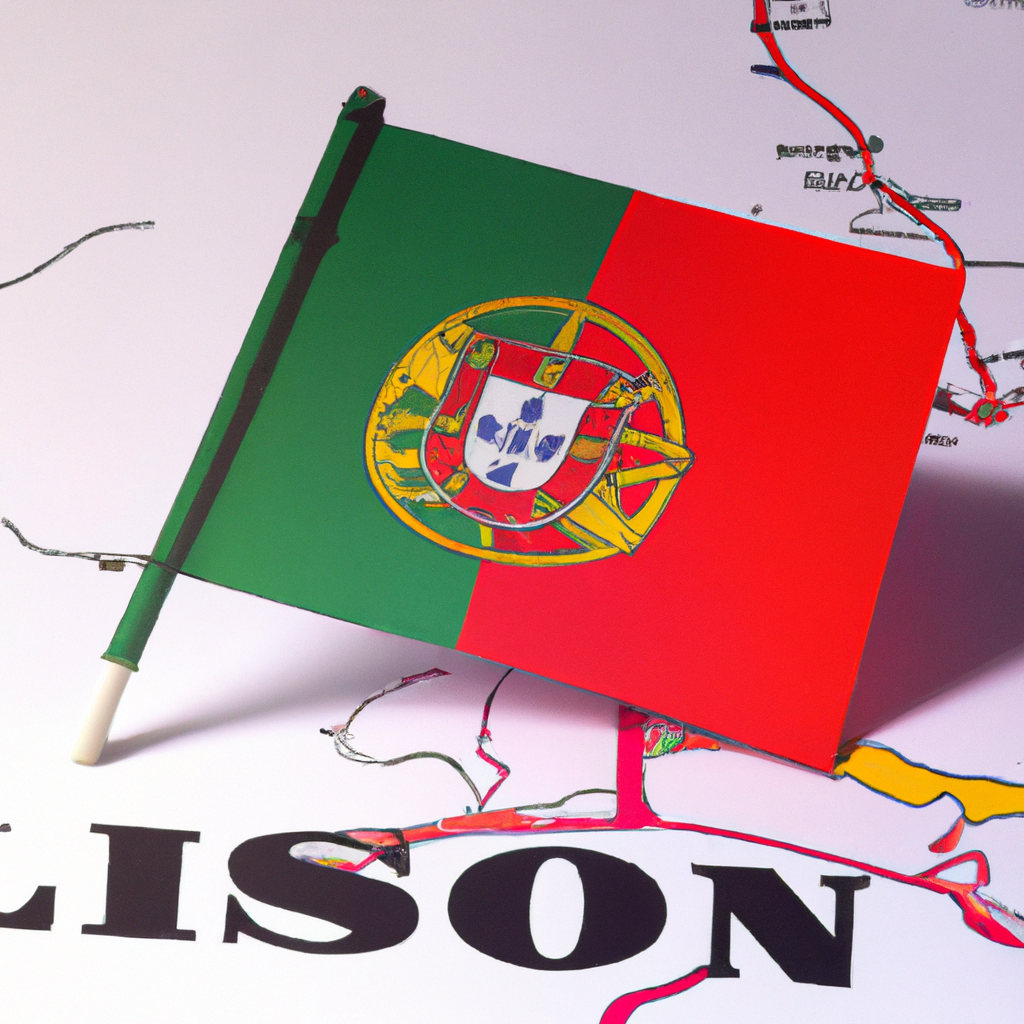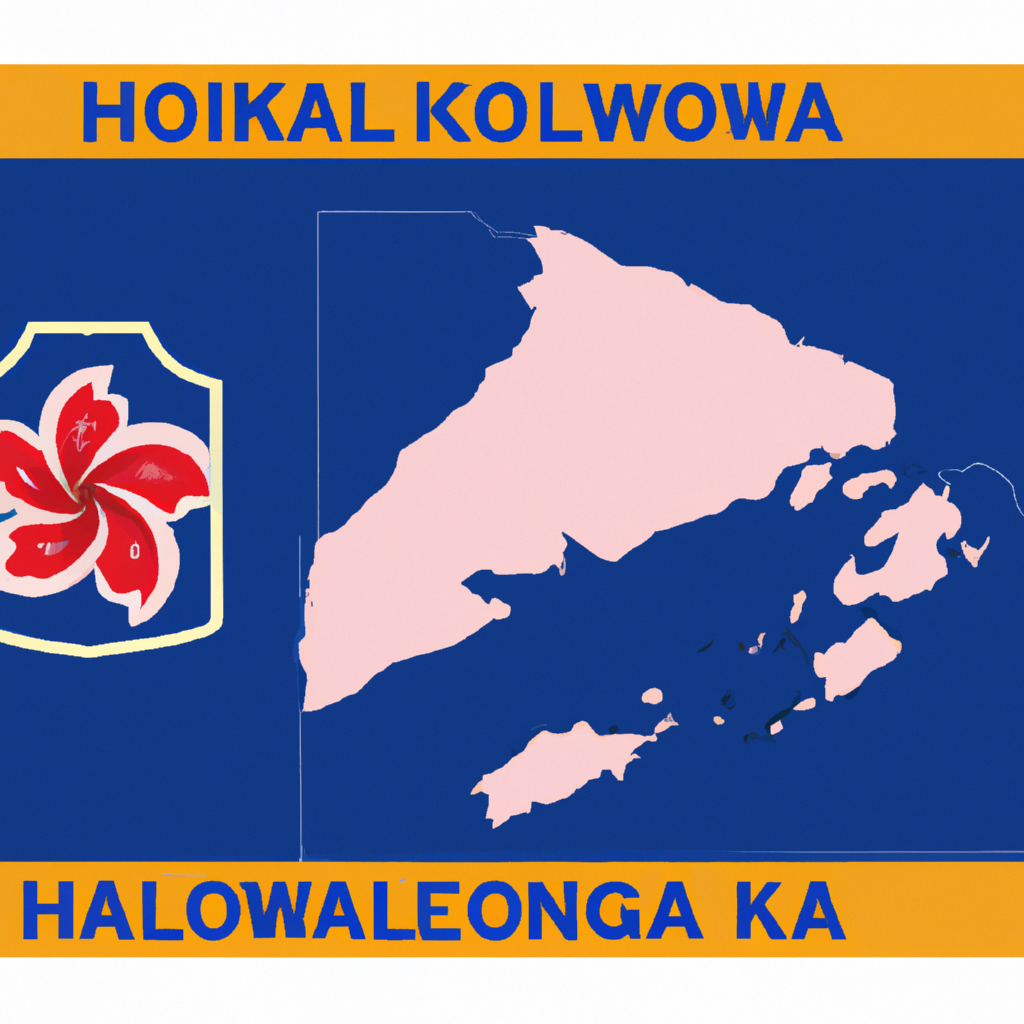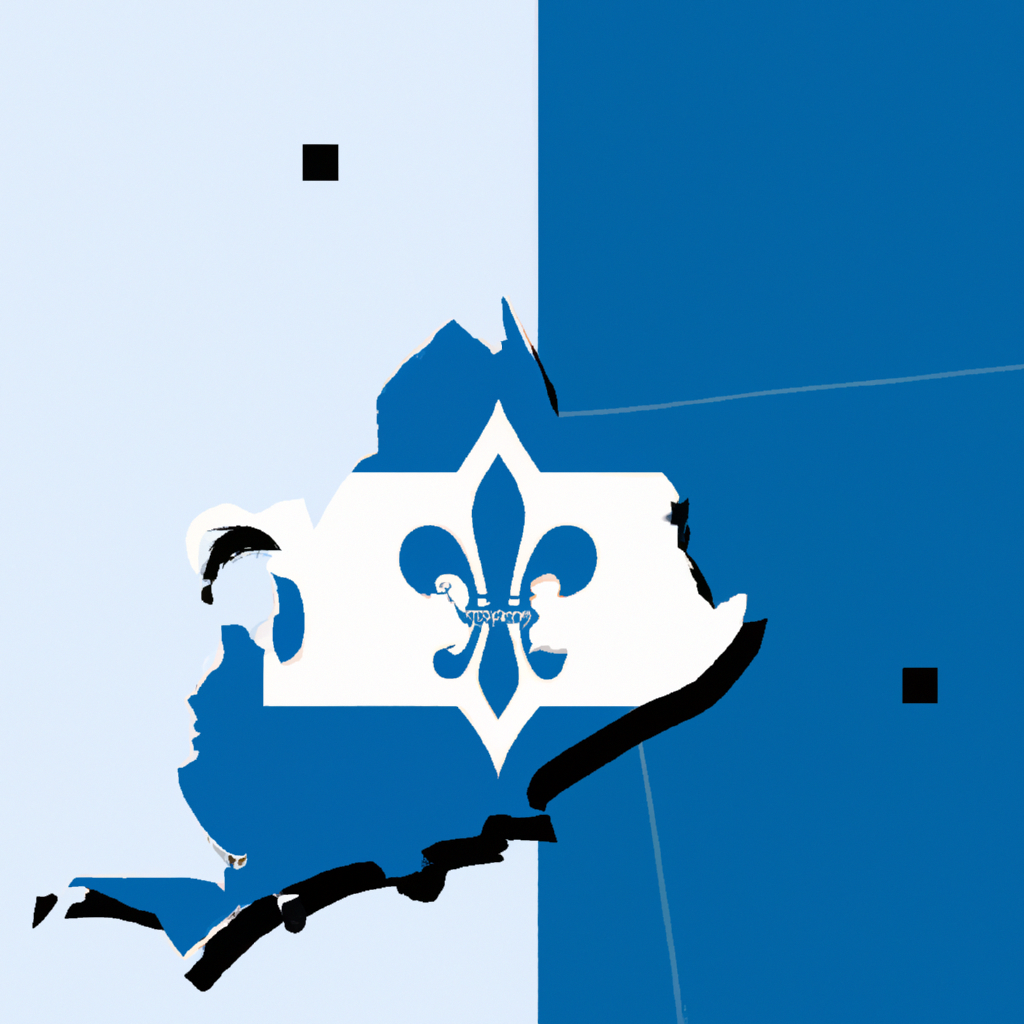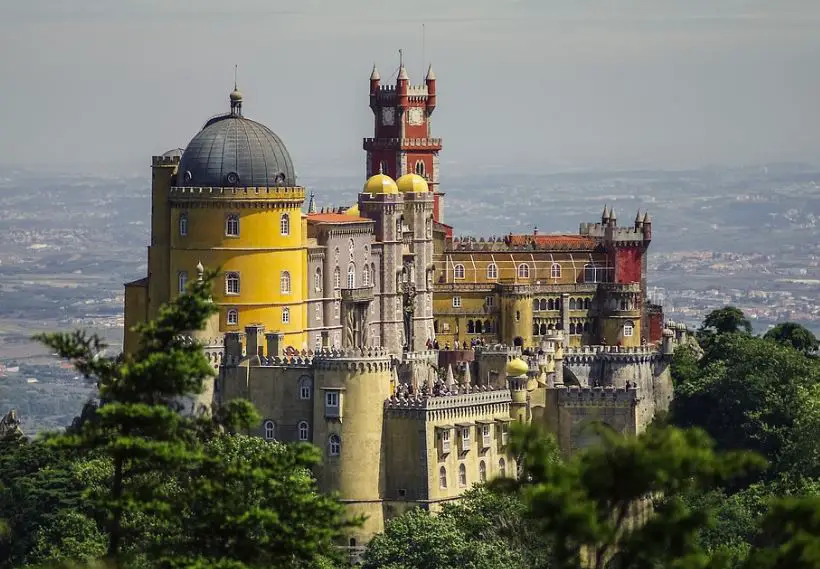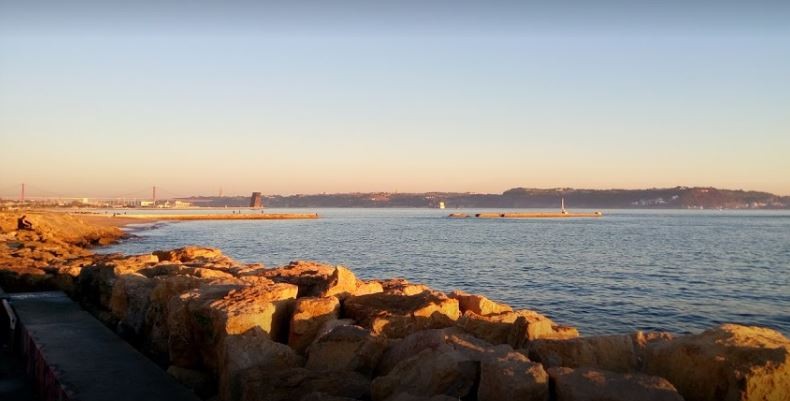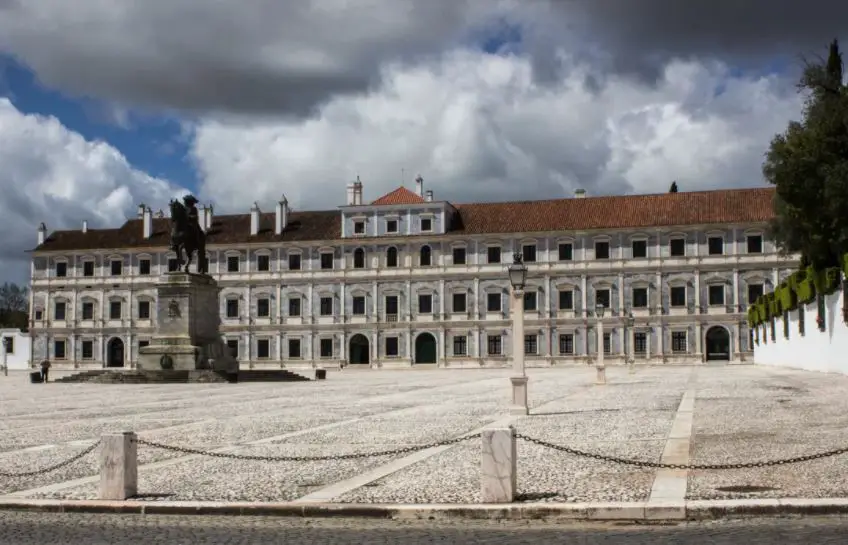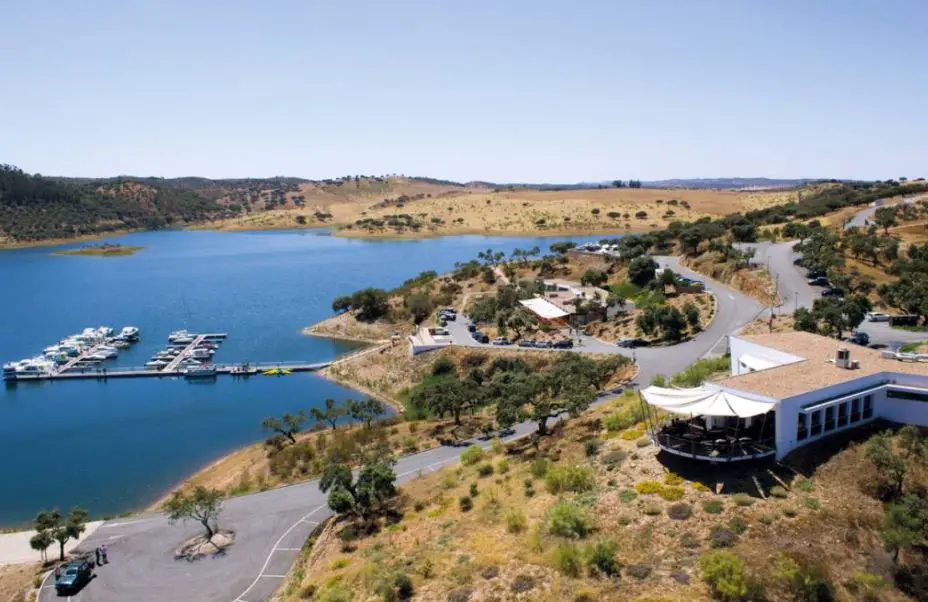Lisbon, Portugal: Interesting Facts,History, Things to do,Why to Visit
Post ByAdequate Travel
Lisbon, Portugal is a place full of culture, history, and adventure. One of the oldest cities in the world, it is a major center for tourism and business, and offers a wealth of things to see and do. From the beautiful beaches of the Costa do Sol, to the bustling city streets and historical monuments, Lisbon has something for everyone. We'll explore the interesting facts about Lisbon, its history, the top things to do, and why visiting this amazing city is such a great option. Whether you're looking for a fun adventure or a cultural experience, Portugal's capital is sure to leave you with unforgettable memories.
Portugal is a country located on the Iberian Peninsula in southwestern Europe. It is bordered by Spain to the east and north and by the Atlantic Ocean to the west and south. The country has a rich history and was once a powerful global empire during the Age of Discovery. Today, Portugal is a member of the European Union and has a developed economy based on industries such as tourism, agriculture, and services. The capital city is Lisbon, and other major cities include Porto and Faro. Portuguese is the official language, and the country has a population of approximately 10.3 million people. Portugal is known for its beautiful coastline, stunning beaches, historic cities, and vibrant culture. It is also famous for its production of port wine, cork, and tiles.Step back in time as you visit the historical sites in portugal, where the past comes alive.
Interesting facts
Geographical Location
Portugal is located in the southwestern part of Europe, bordering the Atlantic Ocean. It is the westernmost country on mainland Europe. Portugal shares its only land border with Spain to the east and north.
Cultural Heritage
Portugal has a rich cultural heritage that can be seen in its architecture, art, music, and literature. The country has several UNESCO World Heritage Sites, including the historic centers of Porto, Guimaraes, and Evora. One prominent example is the Belém Tower in Lisbon, a UNESCO-listed fortified tower that served as a starting point for many of Portugal's voyages during the Age of Discovery.
Port Wine Tradition
Portugal is famous for its production of Port wine, a sweet fortified wine. The Douro Valley in northern Portugal is the oldest wine region in the world and is known for its steep terraced vineyards. Porto, the second-largest city in Portugal, is closely linked to the production and export of Port wine. Visitors can enjoy wine tastings and tours of cellars and vineyards in the region.
Explorers and Discoveries
During the 15th and 16th centuries, Portugal was a leading maritime power known for its explorers and discoveries. Portuguese sailors, such as Vasco da Gama and Ferdinand Magellan, played a major role in the Age of Discovery, expanding European knowledge of the world and establishing trade routes. This period of exploration brought great wealth and influence to Portugal.
Diverse Landscapes
Portugal offers diverse landscapes, ranging from sandy beaches along its long coastline to mountainous regions and lush forests. The Azores and Madeira archipelagos, located in the Atlantic Ocean, are also part of Portugal and offer stunning natural beauty. The Peneda-Gerês National Park, for example, is a mountainous area in the north of Portugal known for its lakes, waterfalls, and abundant wildlife.
From museums to parks,portugal tourist attractions offer something for everyone, making it a versatile destination for all type of tourists.History of Portugal
Portugal, officially known as the Portuguese Republic, is a country located in southwestern Europe on the Iberian Peninsula. Its history dates back to prehistoric times, with the earliest known human presence dating back to around 30,000 BC. Throughout its history, Portugal has experienced periods of great prosperity and colonization, as well as periods of decline and political unrest. Here is an overview of Portugal's history:Prehistoric Times
During prehistoric times, Portugal was inhabited by various Celtic tribes, including the Lusitanians. These tribes were eventually conquered by the Romans in the 2nd century BC, who established the province of Lusitania.Medieval Era
The medieval period in Portugal saw significant developments in terms of its independence and expansion. In 1139, Afonso Henriques proclaimed himself the first King of Portugal, marking the country's independence from the Kingdom of León. Portugal then embarked on a period of exploration, expanding its territories through the Reconquista, a series of campaigns to drive out the Moors from the Iberian Peninsula. This period also witnessed the establishment of the Portuguese language and the birth of the nation's identity.Age of Discoveries
The 15th and 16th centuries were a golden age for Portugal. During this period, Portuguese explorers, such as Vasco da Gama and Ferdinand Magellan, set sail on expeditions that led to the discovery of new trade routes and the establishment of Portuguese colonies around the world. Portugal became a major global power, with its empire stretching from Brazil in South America to Macau in Asia.Decline and Modern Era
Unfortunately, Portugal's golden age did not last forever. In the 17th century, the country began to decline due to economic problems, political instability, and pressure from other European powers. Portugal lost control of many of its colonies and struggled to maintain its status as a major power. In the 20th century, Portugal went through significant political changes, including the overthrow of the monarchy in 1910 and a period of dictatorship under António de Oliveira Salazar. The dictatorship lasted until 1974 when the Carnation Revolution brought democracy to Portugal.Overall, Portugal's history is a rich tapestry of conquests, explorations, and cultural developments. From its prehistoric origins to its colonial empire and modern democracy, Portugal has left a lasting impact on the world.Exploring the rich heritage of historical sites in portugal is a journey through time and culture.Famous Things of Portugal
Lisbon
The capital city of Portugal, Lisbon, is famous for its stunning architecture, rich history, and vibrant culture. Some of its notable landmarks include:
1. Belem Tower
A UNESCO World Heritage Site, Belem Tower is a 16th-century fortification that served as a defense structure and a symbol of Portugal's maritime power.
2. Jeronimos Monastery
Another UNESCO World Heritage Site, Jeronimos Monastery is a beautiful example of Manueline architecture and houses the tombs of Vasco da Gama and other notable Portuguese figures.
3. Alfama District
Alfama is the oldest neighborhood in Lisbon and is known for its narrow winding streets, colorful houses, and traditional Fado music venues.
Port Wine
Portugal is renowned for its production of port wine, a sweet fortified wine. The Douro Valley region is famous for its vineyards and wineries that produce this unique and flavorful wine.
Pasteis de Nata
Pasteis de Nata, also known as Portuguese custard tarts, are a delicious and iconic Portuguese pastry. These sweet treats consist of a crispy puff pastry filled with creamy custard and sprinkled with cinnamon or powdered sugar.
Fado Music
Fado is a traditional Portuguese music genre that is often characterized by its melancholic and soulful tunes. It is usually accompanied by a guitar and is performed in intimate venues, capturing the deep emotions of Portuguese culture.
Sintra
Sintra is a picturesque town located near Lisbon and is famous for its fairytale-like palaces and gardens:
1. Pena Palace
Pena Palace is a vibrant and eclectic palace built in the 19th century, combining elements of Gothic, Moorish, and Renaissance architecture. It is situated on top of a hill and offers panoramic views of the surrounding area.
2. Quinta da Regaleira
This enchanting estate features a neo-gothic mansion and a stunning park filled with hidden tunnels, grottoes, and ornate gardens. It is a UNESCO World Heritage Site and offers a mystical and romantic atmosphere.
3. Castelo dos Mouros
The Castle of the Moors is an imposing fortress that dates back to the 8th century. It offers breathtaking views of Sintra and the surrounding countryside and is an important historical site in Portugal.
Azulejos
Azulejos are traditional Portuguese ceramic tiles that are commonly used for decorative purposes in buildings, churches, and even train stations. These colorful and intricate tiles often depict historical or cultural scenes, adding a touch of beauty to Portugal's architecture.
Ponte 25 de Abril
Ponte 25 de Abril, also known as the 25th of April Bridge, is a suspension bridge that connects Lisbon to the municipality of Almada. Its design resembles the iconic Golden Gate Bridge in San Francisco, making it a recognizable symbol of Portugal.
Discover some unique facts about portugal that will leave you amaze and intrigue.Culture of Portugal
Portugal, located in southwestern Europe on the Iberian Peninsula, has a rich and diverse culture shaped by its history, geographical location, and influences from various civilizations. Here are some key aspects of Portuguese culture:
Historical Influences
Portugal has a long history of exploration, trade, and colonialism. This has greatly influenced its culture, language, and even its cuisine. For example:
- The influence of Portuguese explorers, such as Vasco da Gama, is evident in the country's seafaring traditions and its global mindset.
- During the Age of Discoveries, Portugal established a vast empire, leading to cultural exchanges with Africa, Asia, and South America. The influence of these regions can be seen in Portuguese art, architecture, and music.
- The Portuguese language, one of the most widely spoken languages in the world, has been shaped by various linguistic influences, including Latin, Arabic, and indigenous languages of former colonies.
Geographical Influences
Portugal's location on the Atlantic coast has had a significant impact on its culture, particularly its cuisine and traditional activities:
- Seafood plays a major role in Portuguese cuisine, with dishes such as bacalhau (salted codfish) and sardines being popular.
- The Portuguese coastline offers excellent conditions for fishing, surfing, and other water sports, which are an integral part of the country's lifestyle.
Arts and Literature
Portugal has a vibrant artistic and literary scene, with contributions from renowned artists and writers:
- Famous Portuguese writers, such as Fernando Pessoa and José Saramago, have made significant contributions to world literature.
- The country also has a rich tradition of fado music, a genre characterized by expressive and melancholic melodies. Prominent fadistas, such as Amália Rodrigues, have achieved international recognition.
- Portuguese architecture features a mix of styles, including Romanesque, Manueline, and Baroque. Examples of notable architectural masterpieces include the Belém Tower and the Jerónimos Monastery in Lisbon.
Festivals and Traditions
Portugal is known for its lively festivals and cultural traditions, reflecting the country's religious and historical heritage:
- The Festas de Lisboa, celebrated in June, include processions, music concerts, and street parties. The highlight is the Santo António parade, dedicated to the patron saint of Lisbon.
- The Festa de São João, held in Porto on June 23rd, is characterized by street parties, bonfires, and the tradition of hitting each other with plastic hammers.
- The Carnaval celebrations, particularly in Madeira and Torres Vedras, feature colorful parades, intricate costumes, and lively street parties.
Cuisine of Portugal
Portuguese cuisine is known for its diverse range of flavors and influences, resulting in a rich and hearty culinary tradition. Whether it's fresh seafood, flavorful meats, or delicious pastry, Portugal offers a variety of dishes that delight both locals and tourists alike.1. Seafood
Being a coastal country, seafood plays a major role in Portuguese cuisine. From grilled sardines (sardinhas assadas) to creamy seafood rice (arroz de marisco), there are numerous dishes that showcase the freshness and quality of the seafood available. One popular example is the famous Bacalhau à Gomes de Sá, a traditional dish made with salted cod, potatoes, onions, and eggs.2. Portuguese Grilled Meats
Portugal is also famous for its mouthwatering grilled meats. One such dish is the iconic Frango Piri-Piri, succulent chicken marinated in a spicy chili sauce and grilled to perfection. Another favorite is Carne de Porco à Alentejana, which combines tender pork cubes with clams, potatoes, and spices.3. Pasteis de Nata
For those with a sweet tooth, Portuguese pastries are a must-try. The most famous pastry is the Pasteis de Nata, a delicious custard tart with a caramelized top. These small delights can be found in bakeries all over Portugal and are often enjoyed with a cup of coffee.4. Portuguese Cheese
Cheese lovers will find a wide variety of delectable cheeses in Portugal. Queijo da Serra, made from sheep's milk, is a creamy and aromatic cheese produced in the Serra da Estrela region. There's also the popular Queijo de Azeitão, a soft cheese with a buttery texture and intense flavor.5. Portuguese Wines
No culinary journey through Portugal would be complete without tasting its exceptional wines. From rich reds to refreshing whites, Portugal is known for producing high-quality wines. Douro valley is famous for its port wine, while Vinho Verde offers light and crisp wines perfect for warm summer days.In conclusion, Portuguese cuisine offers a delightful array of flavors and influences. Whether you're craving seafood dishes, grilled meats, delectable pastries, flavorful cheeses, or exceptional wines, Portugal has something to satisfy every palate.Discover unique facts about portugal, a destination filled with rich history and natural beauty.1. Explore the historic district of Lisbon
Lisbon, the capital city of Portugal, is known for its rich history and charming neighborhoods. One must-visit area is the historic district of Alfama. Wander through narrow alleyways filled with colorful buildings, visit São Jorge Castle, and enjoy breathtaking views of the city from Miradouro da Senhora do Monte.
Example activities: Visit São Jorge Castle, explore the narrow streets of Alfama, and admire the city views from Miradouro da Senhora do Monte.
2. Discover the stunning beaches of Algarve
The Algarve region is famous for its magnificent coastline and beautiful sandy beaches. From secluded coves to bustling tourist spots, there is a beach for everyone. Praia da Marinha and Praia de Benagil are particularly renowned for their picturesque rock formations and crystal-clear waters.
Example activities: Relax on the golden sands of Praia da Marinha, take a boat tour to explore the sea caves at Praia de Benagil, and enjoy water sports like surfing or stand-up paddleboarding.
3. Visit the historic city of Porto
Porto is a vibrant city in northern Portugal, known for its stunning architecture and world-famous port wine. Explore the historic Ribeira district, stroll along the Douro River, and visit iconic landmarks such as the Dom Luís I Bridge and São Bento Station.
Example activities: Take a boat cruise along the Douro River, taste port wine at one of the local cellars, and admire the intricate azulejo tiles in São Bento Station.
4. Embark on a wine tour in the Douro Valley
The Douro Valley is a wine lover's paradise. This scenic region is famous for its terraced vineyards and produces some of the finest port wines in the world. Take a wine tour and learn about the winemaking process, visit vineyards, and taste different varieties of port wine.
Example activities: Explore vineyards in Pinhão, go on a river cruise along the Douro River, and savor wine tastings in traditional quintas (wine estates).
5. Discover the enchanting town of Sintra
Sintra is a fairy tale-like town located near Lisbon. It is home to stunning palaces, such as Pena Palace and Quinta da Regaleira, nestled amidst lush greenery. Explore the elaborate gardens, marvel at the architectural beauty, and soak in the magical atmosphere.
Example activities: Visit Pena Palace, explore the mystical initiation wells in Quinta da Regaleira, and take a walk through the picturesque town center.
6. Relax in the Azores Islands
The Azores Islands, an archipelago in the middle of the Atlantic Ocean, offer a peaceful retreat and breathtaking natural landscapes. These islands provide opportunities for hiking, whale watching, and swimming in thermal springs. São Miguel Island, the largest in the archipelago, is particularly popular.
Example activities: Visit Lagoa das Sete Cidades, hike to the summit of Pico da Vara, and go whale watching in the Atlantic Ocean.
7. Explore the medieval town of Évora
Évora, a UNESCO World Heritage Site, is a well-preserved medieval town in the Alentejo region. With its Roman Temple, Gothic cathedral, and narrow streets lined with traditional houses, Évora offers a glimpse into Portugal's history. Don't miss the famous Capela dos Ossos, a chapel decorated with human bones.
Example activities: Visit the Roman Temple, explore the Gothic cathedral, and experience the unique atmosphere of Capela dos Ossos.
When planning your trip to portugal, be sure to include the best things to do in portugal, which encompass a wide range of cultural experiences.Climate of Portugal
Portugal has a Mediterranean climate, which is characterized by hot, dry summers and mild, rainy winters. The country is located on the Iberian Peninsula in southwestern Europe and is heavily influenced by the Atlantic Ocean.Summers
- Summers in Portugal are typically hot and dry, especially in the interior regions. Average temperatures range from 25°C to 35°C (77°F to 95°F), with the highest temperatures experienced in the Alentejo and Algarve regions.- The coastal areas, particularly in the northern and western regions, have cooler temperatures due to the Atlantic Ocean's moderating effect. Average temperatures range from 20°C to 30°C (68°F to 86°F).- During the summer months, Portugal experiences a significant amount of sunshine, making it a popular destination for beachgoers and tourists looking for warm weather.Winters
- Winters in Portugal are mild and relatively wet. Average temperatures range from 8°C to 15°C (46°F to 59°F), with the coldest temperatures experienced in the interior regions and higher altitudes.- The coastal areas have milder temperatures due to the influence of the Atlantic Ocean. Average temperatures range from 10°C to 18°C (50°F to 64°F).- Rainfall is more common during the winter months, particularly in the northern and central regions. The southern regions, such as the Algarve, experience less rainfall.Spring and Autumn
- Spring and autumn are transitional seasons in Portugal, with temperatures gradually warming up or cooling down. - Spring (April to June) is characterized by mild temperatures and increased rainfall, especially in the northern and central regions. The countryside blossoms with flowers and greenery during this time.- Autumn (September to November) brings mild temperatures and occasional rainfall. The landscape displays beautiful autumn colors in regions with deciduous trees.Overall, Portugal's climate offers a diverse range of conditions, with hot summers, mild winters, and relatively moderate temperatures throughout the year. The coastal regions have milder weather due to the cooling influence of the Atlantic Ocean, while the interior regions experience hotter and drier summers. Whether you prefer a beach holiday or exploring historical cities, Portugal's climate can cater to various interests and activities.Discover the untold stories behind portugal unique facts, and historical treasures.Popular Activities in Portugal
Portugal offers a diverse range of activities for visitors to enjoy. Whether you prefer exploring historical landmarks, relaxing on beautiful beaches, indulging in delicious food and wine, or immersing yourself in vibrant cultural festivals, there is something for everyone. Here are some of the most popular activities in Portugal:
1. Visit Historical Landmarks
- Explore the historic districts of Lisbon, such as Alfama and Baixa, and admire iconic landmarks like São Jorge Castle and Belém Tower.
- Discover the medieval town of Óbidos and its well-preserved castle walls.
- Visit the University of Coimbra, one of the oldest universities in the world, and explore its magnificent library and baroque Joanina Chapel.
2. Relax on Beautiful Beaches
- Enjoy the golden sands and clear waters of Algarve's stunning beaches, such as Praia da Marinha and Praia da Rocha.
- Experience the dramatic cliffs and secluded coves of Costa Vicentina in southwestern Portugal.
- Head to the island of Madeira and soak up the sun on its picturesque beaches, like Praia Formosa.
3. Indulge in Delicious Food and Wine
- Sample traditional Portuguese dishes like bacalhau (salted cod), caldo verde (kale soup), and pastéis de nata (custard tarts).
- Explore the famous wine regions of Douro Valley and Alentejo, known for producing excellent wines.
- Visit Porto and enjoy a wine tasting experience in one of the many port wine cellars.
4. Immerse Yourself in Vibrant Cultural Festivals
- Participate in the lively Carnival celebrations held in various cities across Portugal, with colorful parades and music.
- Experience the Festa de São João in Porto, a popular midsummer festival with fireworks, music, and traditional street parties.
- Attend the Festa do Marisco (Seafood Festival) in Olhão, where you can indulge in delicious fresh seafood dishes.
These are just a few examples of the popular activities you can enjoy in Portugal. Whether you are a history enthusiast, a beach lover, a foodie, or someone looking for cultural experiences, Portugal has much to offer.Plan your trip with a list of the best things to do in portugal, catering to all interests.Nightlife in Portugal
1. Lisbon
Lisbon, the capital city of Portugal, offers a vibrant and diverse nightlife scene. The city is known for its charming streets filled with stylish bars, live music venues, and trendy clubs. Some popular areas for nightlife in Lisbon include Bairro Alto, which is known for its narrow streets lined with bars and small clubs, and Cais do Sodré, a waterfront area with a mix of bars, clubs, and live music venues. The city also hosts various music festivals and events throughout the year, attracting both locals and tourists.
Example:
One popular spot in Lisbon for nightlife is the "Pensão Amor" in Cais do Sodré. It is a former brothel turned into a multi-level bar and club, featuring a unique décor and a lively atmosphere. Another example is "Lux Frágil," a renowned club located in a riverside warehouse, offering a wide range of music genres and a stunning terrace overlooking the river.
2. Porto
Porto, located in the northern part of Portugal, also has a thriving nightlife scene. The city is famous for its wine cellars and traditional bars called "tascas," where locals and tourists can enjoy a glass of Port wine or traditional Portuguese drinks. In addition to the traditional venues, Porto also offers trendy bars and clubs, especially in areas like Ribeira and Galerias de Paris.
Example:
A well-known bar in Porto is "Casa do Livro," which combines a bookstore and a bar, creating a unique atmosphere for book lovers who want to enjoy a drink while browsing through literature. Another example is "Plano B," a popular club featuring a variety of music styles, from electronic to hip-hop, attracting a diverse crowd.
3. Algarve
The Algarve region in southern Portugal is known for its beautiful beaches and lively nightlife. The area has numerous beach clubs, cocktail bars, and nightclubs, mostly concentrated in towns like Albufeira, Vilamoura, and Lagos. These venues offer a mix of music genres, from mainstream hits to underground electronic music, providing options for different tastes.
Example:
"Purobeach" in Vilamoura is a popular beach club that offers a luxurious atmosphere, with sunbeds, pools, and live DJ performances. Another example is "Kiss Club" in Albufeira, which is known for hosting international DJs and organizing themed parties throughout the summer season.
Discover the untold stories behind portugal unique facts, and historical treasures.Reasons to Visit Portugal:
Portugal is a country located on the Iberian Peninsula in Europe. It offers a diverse range of attractions and experiences that make it an appealing destination for travelers. Below are some of the key reasons why you should consider visiting Portugal:
1. Rich History and Architecture
Portugal has a fascinating history that dates back centuries, with influences from Romans, Moors, and other empires. This history is reflected in its stunning architecture, including medieval castles, palaces, and churches. Examples of must-visit historical sites include the Belem Tower in Lisbon, the Castle of the Moors in Sintra, and the University of Coimbra.
2. Beautiful Beaches
Portugal is blessed with stunning coastline and beautiful beaches along the Atlantic Ocean. The southern region of the Algarve, in particular, is known for its golden sandy beaches and picturesque cliffs. Praia da Rocha, Praia da Marinha, and Praia de Benagil are just a few examples of the many breathtaking beaches Portugal has to offer.
3. Delicious Cuisine and Wine
Portugal is a food lover's paradise. Its cuisine is rich in flavors and draws inspiration from both the sea and the land. Some traditional Portuguese dishes to try include bacalhau (dried and salted codfish), pasteis de nata (custard tarts), and francesinha (a hearty sandwich). Portugal is also famous for its wine production, particularly Port wine from the Douro Valley.
4. Vibrant Cities
Portugal is home to several vibrant and charming cities that are worth exploring. Lisbon, the capital, is known for its colorful neighborhoods, such as Alfama and Bairro Alto, as well as its iconic tram system. Porto, situated in the north, is famous for its historic center, port wine cellars, and the scenic Douro River. Other cities of interest include Coimbra, Evora, and Faro.
5. Breathtaking Natural Landscapes
Beyond its beaches, Portugal boasts a diverse range of natural landscapes. From the rugged mountains of the Peneda-Geres National Park to the picturesque vineyards of the Douro Valley, nature lovers will be in awe. The Azores and Madeira islands offer volcanic landscapes, lush forests, and unique flora and fauna.
6. Festivals and Events
Portuguese people love to celebrate, and the country is known for its vibrant and lively festivals. The most famous of these is the annual Carnaval, held in different cities across Portugal, with colorful parades and lively street parties. Other notable events include the Festa de Sao Joao in Porto and the Fado music festivals in Lisbon.
Overall, Portugal offers a wide range of attractions, from historical landmarks to stunning natural beauty, delicious cuisine, and vibrant cultural experiences. Whether you are a history buff, beach lover, foodie, or nature enthusiast, Portugal is sure to captivate you with its charm and diversity.Whether you're a history buff or an adventure seeker, portugal has an attraction for you. So, don't miss the chance to visit popular places in portugalNumber of Days Required to Visit Portugal
When planning a trip to Portugal, the number of days required depends on various factors such as your interests, budget, and the places you wish to explore. Here is a detailed explanation of how many days you may need:
1. Lisbon and Surrounding Areas
If you are primarily interested in exploring Lisbon and its surrounding areas, a minimum of 3-4 days is recommended. This will allow you to visit the popular neighborhoods of Alfama, Belém, and Baixa, as well as attractions like Castelo de São Jorge, Torre de Belém, and Jerónimos Monastery. You can also take day trips to nearby destinations such as Sintra and Cascais.
2. Porto and the Douro Valley
Porto, located in the northern region of Portugal, deserves at least 2-3 days for exploration. This vibrant city is known for its charming old town, Port wine cellars, and iconic Dom Luís I Bridge. Additionally, you can spend a day or two exploring the beautiful Douro Valley, famous for its vineyards and scenic landscapes.
3. Algarve and Southern Coastline
If you wish to soak up the sun and relax on Portugal's stunning beaches, the Algarve region is perfect. Allowing for a minimum of 4-5 days will give you ample time to explore coastal towns like Lagos, Faro, and Albufeira. You can also enjoy water sports, visit picturesque caves, and indulge in delicious seafood.
4. Exploring the Cultural Heritage
If you are interested in immersing yourself in Portugal's rich cultural heritage, you may need additional days to visit cities like Coimbra, Évora, and Braga. Each of these cities offers unique historical sites, museums, and architectural wonders. Allowing 2-3 days for each of these cities would be ideal.
5. Islands of Azores and Madeira
Portugal is also home to the stunning islands of Azores and Madeira. If you plan to visit either of these archipelagos, it is recommended to allocate at least 5-7 days. Each island has its own unique charm, with opportunities for hiking, exploring volcanic landscapes, and experiencing local culture.
It's important to note that these suggested durations are just a starting point, and you can always adjust them based on your personal preferences and available time. Planning your itinerary with these guidelines will help ensure that you have enough time to truly immerse yourself in the beauty and culture of Portugal.
Uncover the best portugal attractions that will leave you awe-inspired and wanting more.Significance of Portugal
Portugal holds a significant historical, cultural, and geographical importance. Here are some key points showcasing the significance of Portugal:
1. Maritime Exploration
Portugal is renowned for its historical role in maritime exploration during the 15th and 16th centuries. Leading the Age of Discovery, Portuguese explorers such as Vasco da Gama, Ferdinand Magellan, and Bartholomew Dias sailed across the globe, establishing trade routes and discovering new lands. Their expeditions greatly contributed to the expansion of European influence and the establishment of overseas colonies.
2. Colonial Empire
During the 16th to 18th centuries, Portugal built an extensive colonial empire, establishing territories in Africa, Asia, and South America. The Portuguese had strong economic, political, and cultural influence in places like Brazil, Angola, Mozambique, Macau, and Goa. This influence can still be seen in the language, architecture, and traditions of these regions today.
3. Age of Discoveries
Portugal's success in maritime exploration and colonization during the Age of Discoveries significantly shaped world history. Along with the Spanish Empire, Portugal played a crucial role in expanding European influence globally, opening up trade routes, and obtaining valuable resources. The interactions and exchanges between diverse cultures led to significant advancements in various fields, including science, technology, cartography, and navigation.
4. Cultural Heritage
Portugal has a rich cultural heritage, encompassing art, literature, music, and cuisine. It gave birth to influential figures like Luís de Camões, a renowned poet, and Fernando Pessoa, a modernist writer. Portuguese cuisine, known for its diverse seafood dishes and pastries like pastel de nata, has gained international recognition. The country's vibrant festivals, such as the Lisbon Book Fair and the Festa de Santo António, attract visitors from around the world.
5. Natural Beauty
Portugal possesses diverse landscapes, ranging from sandy beaches to mountainous regions. This natural beauty, combined with a pleasant climate, attracts numerous tourists throughout the year. The Algarve's stunning coastlines, the Douro Valley's vineyards, and the unique volcanic archipelago of the Azores are just a few examples of Portugal's captivating natural wonders.
In conclusion, Portugal's significance lies in its historical contributions to maritime exploration, its colonial empire, and its role in shaping world history during the Age of Discoveries. It has also preserved a rich cultural heritage and offers breathtaking natural landscapes, making it a fascinating country with much to explore and appreciate.From hidden gems to iconic landmarks, portugal has something for every traveler's taste.FAQ's of Portugal
1. What is the capital city of Portugal?
The capital city of Portugal is Lisbon.
Example: Lisbon is a vibrant and historic city located on the western coast of Portugal. It is known for its charming neighborhoods, picturesque views, and rich cultural heritage.
2. What is the official language of Portugal?
The official language of Portugal is Portuguese.
Example: Portuguese is a Romance language spoken by over 200 million people worldwide. It has a unique phonetic system and several dialects. Learning a few basic Portuguese phrases can enhance your experience while visiting Portugal.
3. What is the currency of Portugal?
The currency of Portugal is the Euro (€).
Example: The Euro is the common currency of many European countries. It is divided into banknotes and coins, with different denominations. It is advisable to check the current exchange rates before traveling to Portugal.
4. What are some famous tourist attractions in Portugal?
Portugal offers a variety of tourist attractions. Some popular ones include:
- The historic district of Alfama in Lisbon
- The Belem Tower in Lisbon
- The coastal cliffs of the Algarve
- The Douro Valley and its vineyards
- The university city of Coimbra
These are just a few examples of the many captivating attractions Portugal has to offer.
5. What is the weather like in Portugal?
Portugal has a Mediterranean climate with mild, rainy winters and hot, dry summers.
Example: The southern regions of Portugal, such as the Algarve, enjoy a warm climate throughout the year, making it a popular destination for beach lovers. The northern regions, including Porto, have slightly cooler temperatures.
6. What is the traditional cuisine of Portugal?
The traditional cuisine of Portugal is diverse and influenced by both Mediterranean and Atlantic flavors.
Example: Some popular Portuguese dishes include bacalhau (salted codfish), caldo verde (kale soup), pasteis de nata (custard tarts), and francesinha (a hearty sandwich). Portuguese cuisine is known for its fresh seafood, olive oil, and use of herbs and spices.
7. What are the transportation options in Portugal?
Portugal has a well-developed transportation system that includes buses, trains, and metros.
Example: Lisbon and Porto have efficient metro systems that make it easy to travel within the cities. Buses and trains connect different regions of Portugal, providing convenient transportation options for both short and long distances. Renting a car is also a popular choice for exploring the country at your own pace.
Explore the popular places in portugal, and immerse yourself in its vibrant culture.